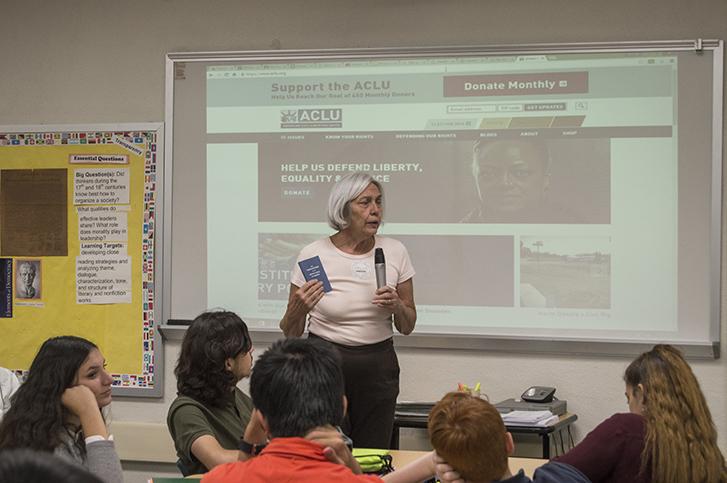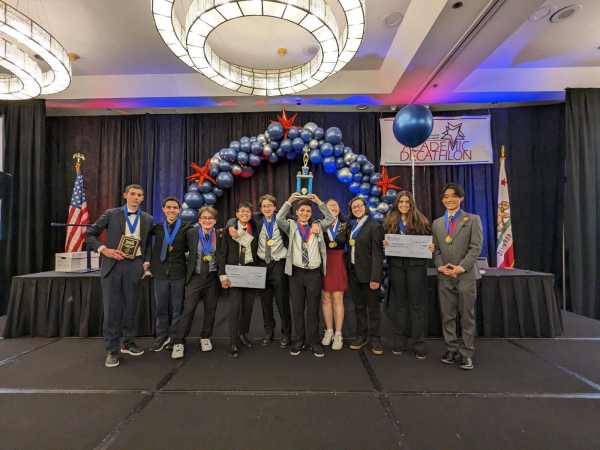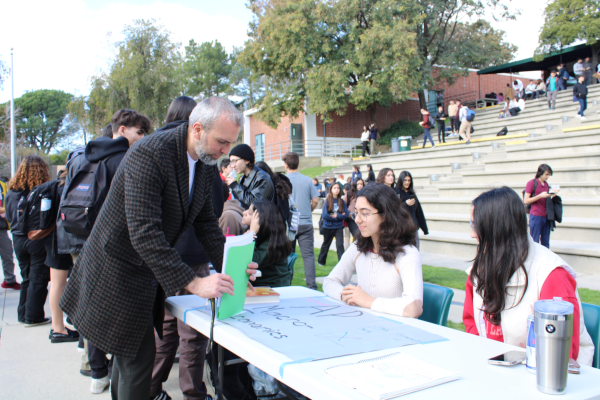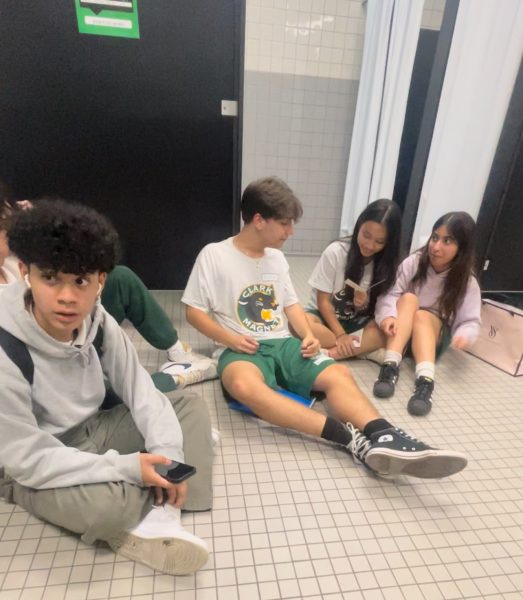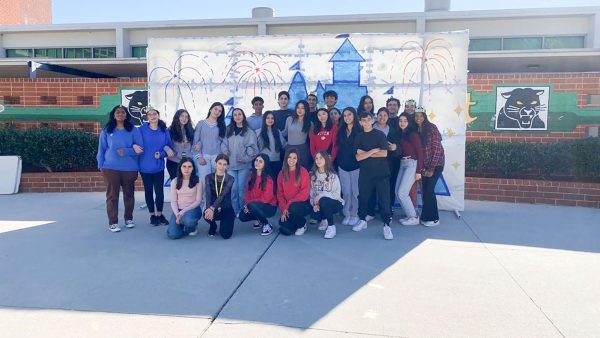ACLU speaker addresses students on Constitution Day
ACLU speaker Roberta Medford speaks to Humanities about the Constitution and the rights we have.
If you happen to be in Montrose on a Friday afternoon and you go to the corner of Honolulu Avenue and Ocean View Boulevard. you may see American Civil Liberties Union member Roberta Medford with other ACLU members protesting to stop unreasonable wars.
Medford came to Clark Sept. 16 and spoke to the Davis’ Humanities period four and six classes; she said that she came to Clark because it’s the federal law for students to learn about the constitution. Despite Clark being open for 18 years, this was the first time an ACLU speaker came to speak at Clark, according to history teacher Chris Davis.
Medford came to Clark to speak with students about the rights the Constitution’s Bill of Rights provide. Sophomore Gary Balasanian, a block three student, asked Medford, “What caused you to start speaking to high school students to speak about the rights they have?” Medford replied, “I have been an activist my whole life trying to make the Constitution more important and known around the state. By coming to high schools, it helps expands to the knowledge about the Constitution to a broader audience.” Sophomore Victoria Bochniak said that the presentation was a great way to learn about the Constitution and learn more about the rights we have as people. “The speaker gave the students an educational experience that we don’t get every day or at every school,” Bochniak said. “Our knowledge on the Constitution was expanded by Medford coming to speak with us. Interesting questions were asked which were then followed by a thought-provoking discussion.”
Sophomore Carlos Rodriguez said that it was better that the people had their rights written down because when they weren’t you would have unlimited rights, but you wouldn’t be able to defend them. “The reason it is better if the rights are written down is because when we have to defend our rights, and we say ‘Oh I have this,’ but it’s not written down and you can’t defend the rights you actually have,” Rodriguez said.
The different views that the Federalists and antiFederalists had on their rights helped Rodriguez realize how safe he felt knowing his rights were written down. If you want to maintain the rights you have, you need to be aware of your rights and be willing to defend them.
When Medford discussed the Fourth Amendment, which protects our rights against unreasonable searches and seizures, sophomore Shirak Issakhanian asked, “If your phone is taken, do teachers have the right to search through it?” The only exception for your phone being searched once it has been taken away is through a search warrant issued by a judge based on probable cause according to the ACLU.
Sophomore Melissa Diaz asked, “If teachers have the right to check your backpack or take your phone, do students have the right to ask why?” Medford replied, “I believe that students always have the right to speak up.”

Hobbies: Archery, dance, writing, cooking, music
Favorite shows: Game of Thrones, Criminal Minds, World of Dance, Legion, Runaways, Daredevil, Runnning...

Hobbies: Music and Reading
Favorite shows: Vampire Diaries, Hidden Singer, Anne without an E, My ID is Gangnam Beauty
Places you want to...



